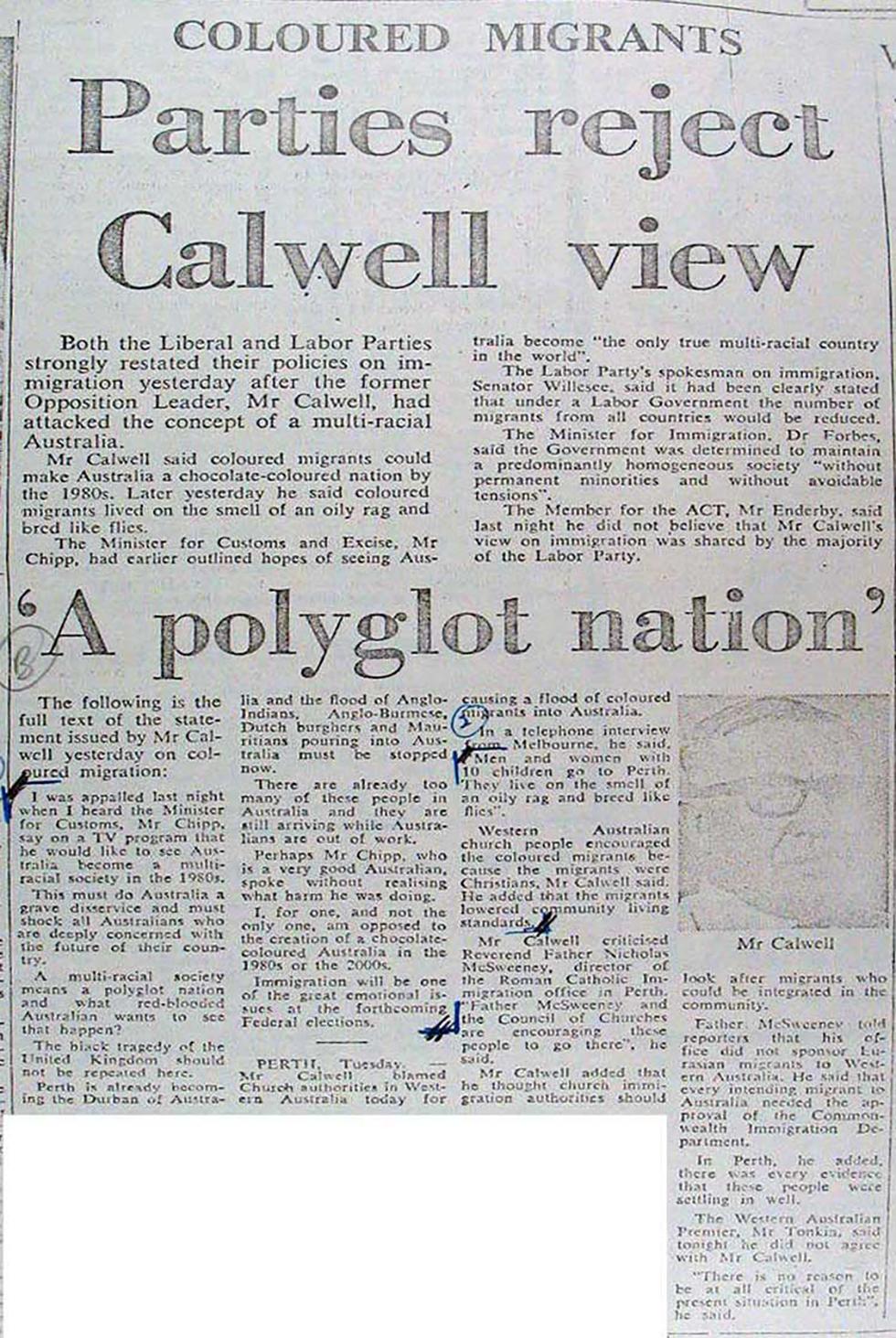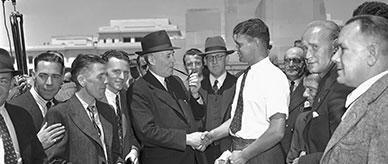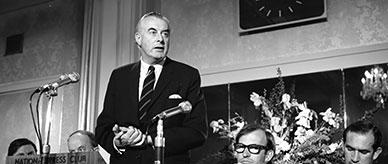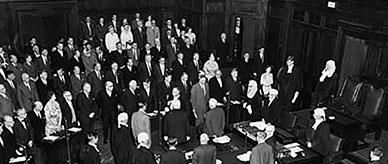


Transcript
[Heading:] COLOURED MIGRANTS
[Main headline:] Parties reject Calwell view
Both the Liberal and Labor parties strongly restated their policies on immigration yesterday after the former Opposition Leader, Mr Calwell, had attacked the concept of a multi-racial Australia.
Mr Calwell said coloured migrants could make Australia a chocolate-coloured nation by the 1980s. Later yesterday he said coloured migrants lived on the smell of an oily rag and bred like flies.
The Minister for Customs and Excise, Mr Chipp, had earlier outlined hopes of seeing Australia become "the only true multi-racial country in the world".
The Labor Party's spokesman on immigration, Senator Willesee, said it had been clearly stated that under a Labor government the number of migrants from all countries would be reduced.
The Minister for Immigration, Dr Forbes, said the Government was determined to maintain a predominantly homogenous society "without permanent minorities and without avoidable tensions".
The Member for the ACT, Mr Enderby, said last night he did not believe that Mr Calwell’s view on immigration was shared by the majority of the Labor Party.
[Headline:] 'A polygot nation'
[Handwritten annotation in pencil:] B
The following is the full text of the statement issued by Mr Calwell yesterday on coloured migration:
[Paragraph marked with opening corner bracket and number '1' in blue pen.] I was appalled last night when I heard the Minister for Customs, Mr Chipp, say on a TV program that he would like to see Australia become a multi-racial society in the 1980s.
This must do Australia a grave disservice and must shock all Australians who are deeply concerned with the future of their country.
A multi-racial society means a polyglot nation and what red-blooded Australian wants to see that happen?
The black tragedy of the United Kingdom should not be repeated here.
Perth is already becoming the Durban of Australia and the flood of Anglo-Indians, Anglo-Burmese, Dutch burghers and Mauritians pouring into Australia must be stopped now.
There are already too many of these people in Australia and they are still arriving while Australians are out of work.
Perhaps Mr Chipp, who is a very good Australian, spoke without realising the harm he was doing.
I, for one, and not the only one, am opposed to the creation of a chocolate-coloured Australia in the 1980s or the 2000s.
Immigration will be one of the great emotional issues at the forthcoming Federal elections.
[Closing corner bracket added in blue pen]
[Dividing line]
-
PERTH, Tuesday. -
Mr Calwell blamed church authorities in Western Australia today for causing a flood of coloured migrants into Australia.
In a telephone interview from Melbourne, he said, [section marked with opening corner bracket and number '2' in blue pen.] "Men and women with 10 children go to Perth, they live on the smell of an oily rag and breed like flies".
Western Australian church people encouraged the coloured migrants because the migrants were Christians, Mr Calwell said. He added that the migrants lowered community living standards. [Closing corner bracket added in blue pen.]
Mr Calwell criticised Reverend Father Nicholas McSweeney, director of the Roman Catholic Immigration office in Perth. "Father Mc Sweeney and the Council of Churches are encouraging these people to go there", he said.
Mr Calwell added that he thought church immigration authorities should look after migrants who could be integrated in the community.
Father McSweeney told reporters that his office did not sponsor Eurasian migrants to Western Australia. He said that every intending migrant to Australia needed the approval of the Commonwealth Immigration Department.
In Perth, he added, there was every evidence that these people were settling in well.
The Western Australian Premier, Mr Tonkin, said tonight he did not agree with Mr Calwell.
"There is no reason to be at all critical of the present situation in Perth", he said.
Related themes
Need help with your research?
Learn how to interpret primary sources, use our collection and more.



